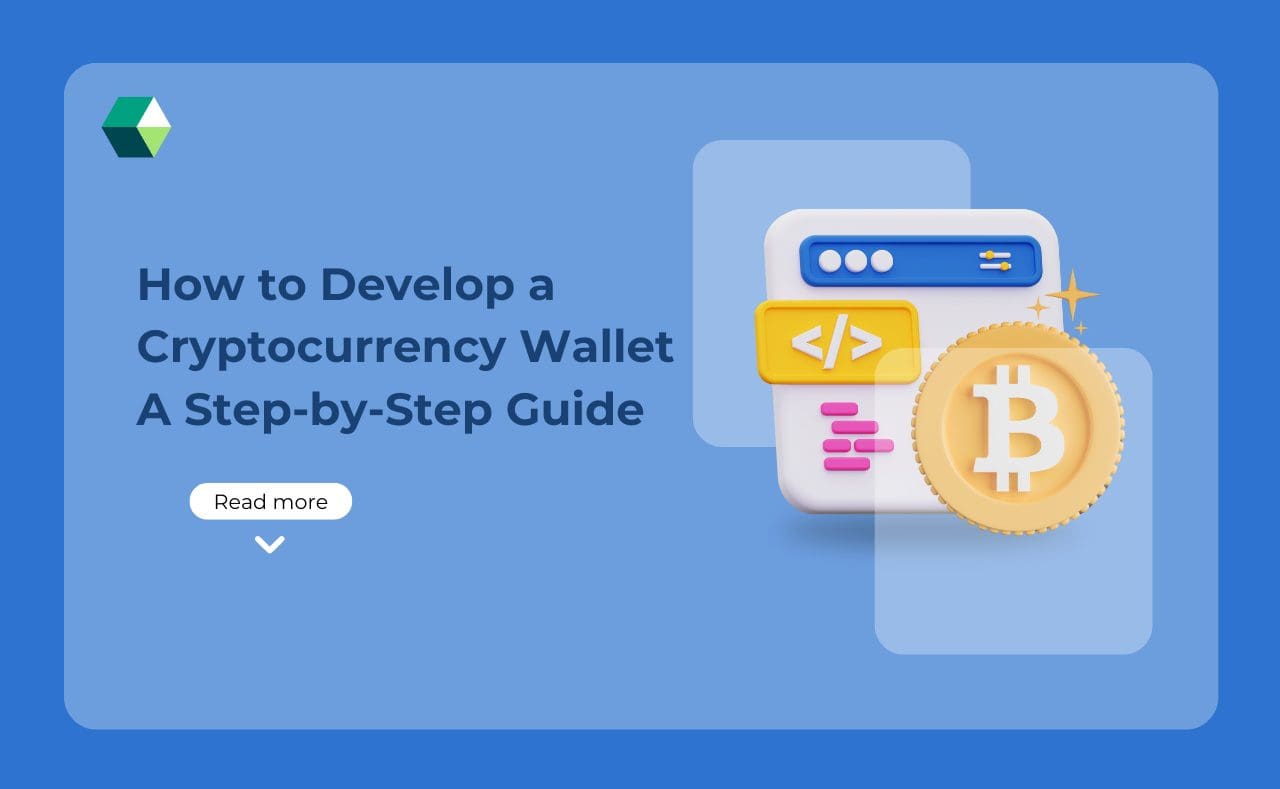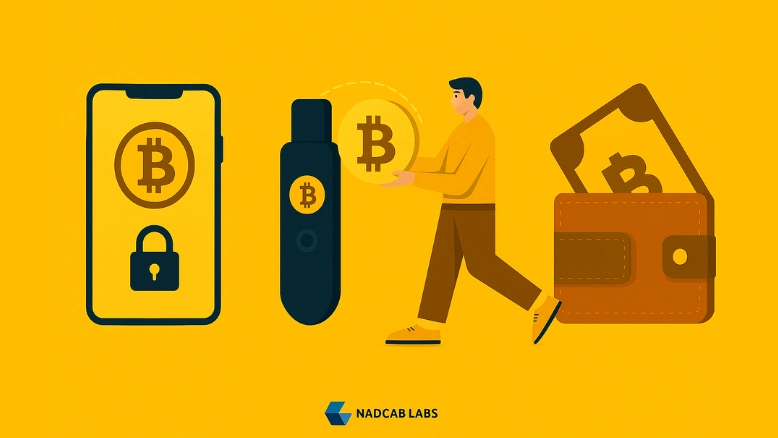
Crypto wallets are essential tools for anyone dealing with digital currencies like Bitcoin and Ethereum. As more people get into cryptocurrencies, the need for secure and user-friendly wallets is increasing. In this guide, we’ll walk you through the steps to create a cryptocurrency wallet, highlighting important aspects like choosing a cryptocurrency wallet solutions company, the various cryptocurrency wallet services available, and the significance of a multi-cryptocurrency wallet.
What is a Cryptocurrency Wallet?
A cryptocurrency wallet is a digital tool that allows users to store, send, and receive cryptocurrencies like Bitcoin, Ethereum, and many others. Unlike a physical wallet that holds cash, a cryptocurrency wallet doesn’t actually store the coins themselves; instead, it holds the keys that give you access to your digital assets on the blockchain.
There are two main types of keys: a Public Key, which is like your bank account number and can be shared with others to receive funds, and a Private Key, which is like your password and must be kept secret, as it allows you to send cryptocurrencies. Wallets can be classified into two categories: hot wallets, which are connected to the internet and are convenient for everyday transactions, and cold wallets, which are offline and offer enhanced security for storing assets long-term. Using a cryptocurrency wallet is essential for anyone involved in digital currencies, as it ensures your funds are safe and easily accessible for transactions.
Why We Need Cryptocurrency Wallet Services?
Cryptocurrency wallet solutions are very important for a few reasons. First, as more people get interested in cryptocurrencies, they need safe and easy-to-use wallets to store their digital money. A good wallet helps protect users from hacks and theft, ensuring their assets are secure. By offering cryptocurrency wallet services, businesses can create customized wallets that fit specific needs, like supporting multiple cryptocurrencies and having strong security features.
Additionally, a user-friendly wallet makes it easy for people to send and receive money, back up their data, and work with different types of cryptocurrencies. With the growth of decentralized finance (DeFi) and non-fungible tokens (NFTs), wallets need to be updated to support these new technologies. By building strong cryptocurrency wallets, businesses can attract more users and give them the tools they need to manage their digital currencies. Overall, wallet creation is key to making cryptocurrency safe and accessible for everyone.
Step-by-Step Process to Create a Cryptocurrency Wallet
Creating a Cryptocurrency Wallet is a comprehensive process that requires careful planning, technical expertise, and an understanding of user needs. Here’s a detailed step-by-step guide to help you through the entire journey:
Research and Planning
Identify Target Audience:
Start by understanding who will use your wallet. This could range from casual users wanting to make simple transactions to experienced traders who need advanced features for trading and asset management. Knowing your audience helps shape the wallet’s design and functionality.
Define Features:
List the essential features your wallet will offer. Common features include multi-currency support, user-friendly interfaces, transaction history, backup and recovery options, and integration with decentralized applications (dApps). Make sure to prioritize security and ease of use in your planning.
Choose the Type of Wallet
Hot Wallets:
These are connected to the internet, making them convenient for quick transactions. They are suitable for users who actively trade or make frequent transactions.
Cold Wallets:
These are offline wallets that offer enhanced security, ideal for long-term storage of cryptocurrencies. Cold wallets can include hardware wallets or a Bitcoin paper wallet, which are less susceptible to hacks and provide an extra layer of protection by keeping private keys completely offline.
Select a Creation Method
Build from Scratch:
This option gives you complete control over the wallet’s features and security protocols. However, it requires significant time and resources.
Use White-Label Solutions:
This faster approach involves customizing existing wallet software. While it may limit some custom features, it can speed up the process and reduce costs.
Design the User Interface (UI)
A well-designed user interface is crucial for user engagement. Focus on creating an intuitive layout that allows users to navigate the wallet easily. Use clear icons, simple language, and a logical flow for actions such as sending and receiving funds.
Responsive Design:
Ensure the wallet works seamlessly across various devices, including desktops, tablets, and smartphones.
Implement Security Features
Data Encryption:
Protect sensitive user data and private keys using strong encryption methods. This prevents unauthorized access to users’ funds.
Two-Factor Authentication (2FA):
Implement 2FA to add an extra layer of security. This requires users to verify their identity through a secondary method, such as a text message or authentication app.
Backup and Recovery Options:
Provide users with easy-to-follow procedures for backing up their wallets and recovering their funds if they lose access.
Integrate Blockchain APIs
Connect your wallet to various blockchain networks using APIs. This integration is vital for enabling transactions, checking balances, and interacting with different cryptocurrencies. Ensure that the APIs you use are reliable and well-documented.
Testing
Conduct extensive testing to identify and resolve any bugs or vulnerabilities. This includes functional testing, performance testing, server load testing, and security testing to ensure seamless performance and reliability of the application under various conditions.
Usability Testing:
Involve real users in testing to gather feedback on the wallet’s usability. This helps identify any areas for improvement before the official launch.
Why Choose Nadcab Labs for a Cryptocurrency Wallet?
Choosing Nadcab Labs for your multi-cryptocurrency wallet solutions means working with a team that focuses on creating safe and user-friendly solutions. We build custom multi-cryptocurrency wallets that fit your specific needs, whether you are just starting out or have an established business. Our team understands blockchain technology and security, ensuring that your wallet is not only easy to use but also highly secure.
At Nadcab Labs, we aim to make it simple for users to manage different cryptocurrencies all in one place. Our multi-cryptocurrency wallets allow users to hold, send, and receive various digital currencies without any hassle. We include important features like transaction history and support for different types of cryptocurrencies. Additionally, we ensure our wallets are thoroughly tested and offer ongoing support, so you can rely on us whenever you need help. By choosing Nadcab Labs, you will have a trusted partner to help you create a secure and efficient multi-cryptocurrency wallet that meets today’s needs.





